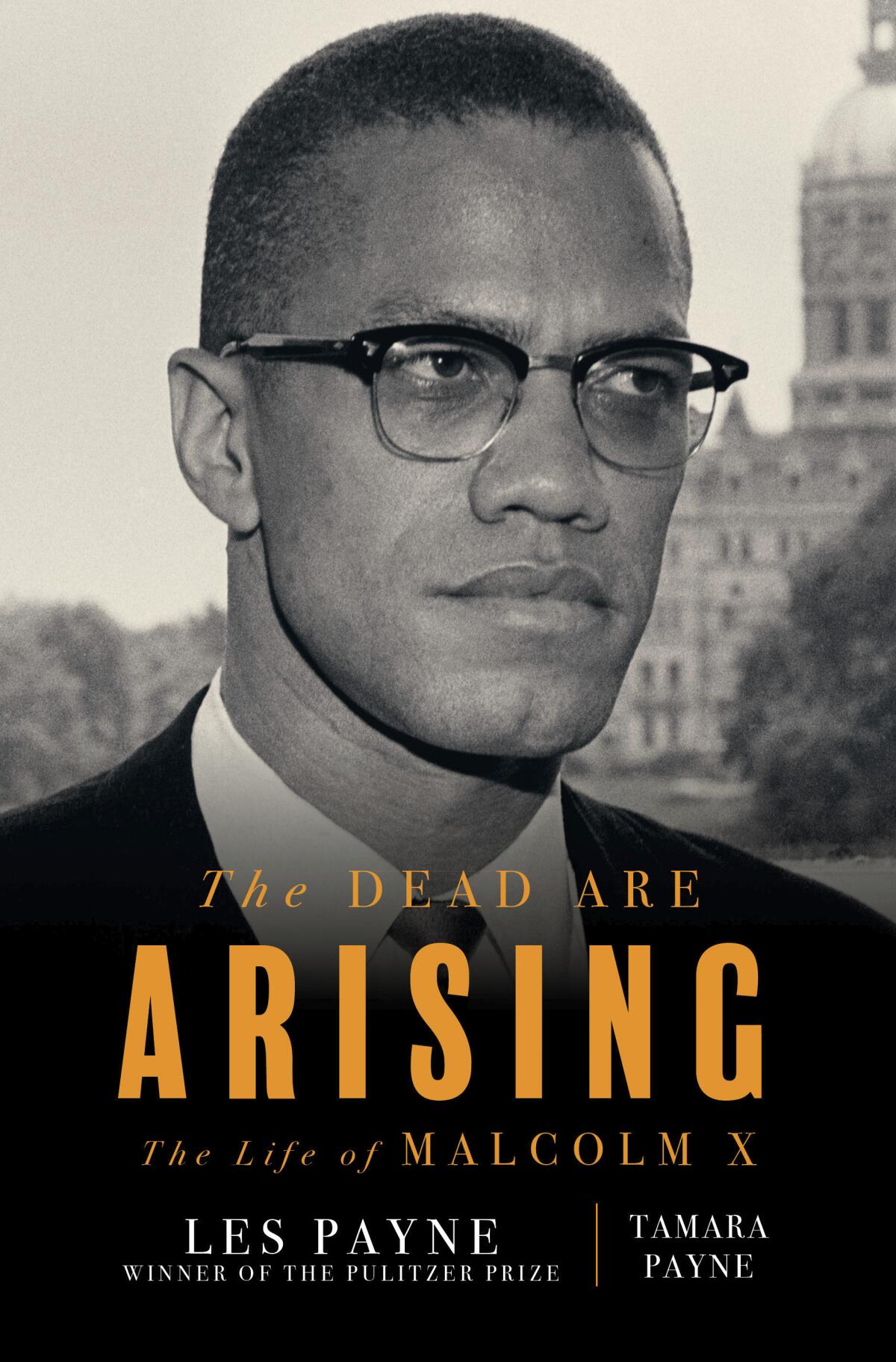2021 Pulitzer Prize winners include books reckoning with Black history and representation

The 2021 Pulitzer Prizes, announced Friday in a virtual ceremony, honored several books that addressed Black history and underrepresented Americans in light of a tumultuous year of protests and reckonings following the murder of George Floyd.
The winner in fiction was Louise Erdrich for “The Night Watchman,” which follows Native American tribes in the 1950s and their collective resistance against colonialism and displacement. The book, which the Pulitzer judges praised as “a majestic, polyphonic novel ... rendered with dexterity and imagination,” draws on the story of Erdrich’s grandfather in North Dakota.
Erdrich, an enrolled member of the Turtle Mountain Band of Chippewa Indians, has written 28 books across the genres of fiction, nonfiction, poetry and children’s literature. This is her first Pulitzer Prize.
Finalists in the category were Daniel Mason’s “A Registry of My Passage Upon the Earth” and “Telephone,” by Percival Everett, a novelist based at USC who writes frequently about misperceptions of Black people in academia and elsewhere.
At a time when backlash is building against discussions of race in the classroom, the Pulitzer committee honored several nonfiction works that bring the Black experience to the foreground.
The winner in general nonfiction was “Wilmington’s Lie: The Murderous Coup of 1898 and the Rise of White Supremacy” by David Zucchino.
Zucchino’s history covers one of the closing chapters of the Reconstruction era, when the North Carolina city’s majority-Black elected government was overthrown.
Even as a backlash brews over teaching America’s racist history, ‘Forget the Alamo’ and ‘How the Word Is Passed’ tell of the full, inglorious past,
Finalists were Sierra Crane Murdoch’s “Yellow Bird: Oil, Murder, and a Woman’s Search for Justice in Indian Country” and Cathy Park Hong’s “Minor Feelings: An Asian American Reckoning.”
Known for her poetry and essays, Hong weaves together memoir, ethnic studies, theory and history to illustrate the realities of racial consciousness in America while delving into her Korean upbringing and history. “Minor Feelings” has become a bestseller as readers confront a spike in hate crimes against AAPI communities across the country.
The prize for poetry went to Natalie Diaz’s second collection, “Postcolonial Love Poem,” which its publisher describes as “an anthem of desire against erasure” in which “the wounds inflicted by America onto an indigenous people are allowed to bloom pleasure and tenderness.”
The winner in the history category was “Franchise: The Golden Arches in Black America,” by Marcia Chatelain, which explores the connections among the McDonald’s restaurant chain, the civil rights movement and the Black community.
And the Pulitzer Prize winner for biography is “The Dead Are Arising: The Life of Malcolm X,” by the late Les Payne and Tamara Payne. Les Payne, who previously won a Pulitzer Prize in investigative journalism, set out in 1990 to interview people who knew Malcolm X, hoping to reexamine the life of one of the nation’s most chronicled and least understood Black activists.
The prizes also honored many journalists who covered the death of George Floyd and the movement that followed, from reporters at the Minneapolis Star-Tribune, in the city where Floyd was killed, to Times editorial writer Robert Greene for a series of pieces on criminal justice reform.
A special citation was awarded to Darnella Frazier, who was 17 when she used her cellphone to record Floyd’s death under the knee of police officer Derek Chauvin. Chauvin was convicted of murder in April.
The Pulitzer Prize Board praised Frazier for “courageously recording the murder of George Floyd, a video that spurred protests against police brutality around the world, highlighting the crucial role of citizens in journalists’ quest for truth and justice.”
“This year’s winners not only covered the news,” said Stephen Engelberg, cochair of the Pulitzer Prize Board. “They delivered context, insights and information available nowhere else. Reporters and editors who worked on these stories faced unparalleled challenges. In-person interviews were sometimes life-threatening. Risky too was the essential work done by the reporters covering the police reaction to last summer’s Black Lives Matter protests.”
More to Read
Sign up for our Book Club newsletter
Get the latest news, events and more from the Los Angeles Times Book Club, and help us get L.A. reading and talking.
You may occasionally receive promotional content from the Los Angeles Times.








